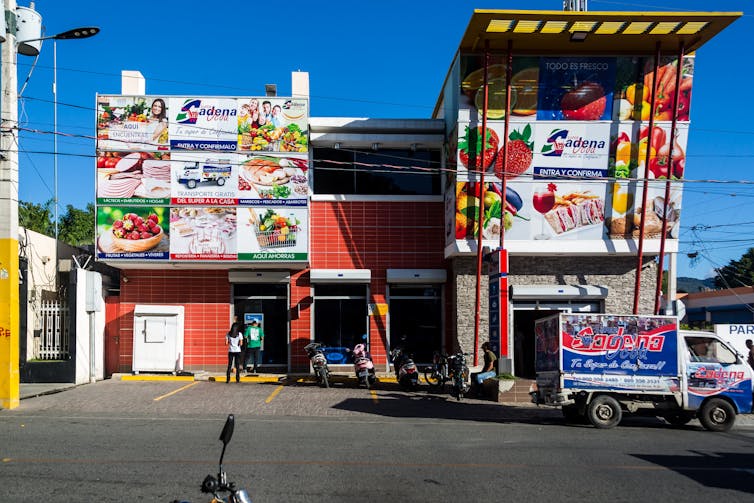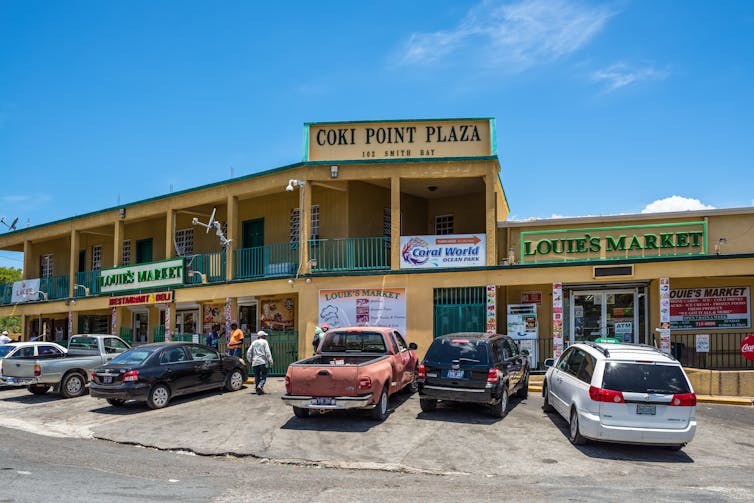The pandemic and world-wide trade disruptions have highlighted the rising vulnerability of Caribbean states when it arrives to importing food stuff objects. Annually, Caribbean states import foods items valued at nearly US$5 billion for food stability.
Worldwide border closures to control the spread of COVID-19 intended restricted entry to these imported food things which make up much more than 80 for every cent of the region’s food items system.
A family study commissioned by Caribbean governments in April 2020 to explore the impact of the pandemic on regional foodstuff stability revealed that global border closures elevated obstacles to meals safety by augmenting meals selling prices and decreasing income and work ranges. The survey info also discovered that more than fifty percent of all respondents professional revenue or career decline.
The influence of worldwide border closures on food stuff stability
Tourism supports a significant percentage of financial exercise in the Caribbean. Intercontinental border closures, which prompted the in close proximity to-full shutdown of air and cruise journey to suppress the distribute of COVID-19, dealt a catastrophic blow to the Caribbean’s tourism market.
The decrease in tourism led to diminished paying by holidaymakers, hotel and related tourism support closures and position losses for group members. Such results translated to increased stages of indebtedness, unemployment and psychological pressure, disproportionately affecting vulnerable populations during the Caribbean.
All of these aspects produced many residents anxious about their capability to make certain meals protection in the coming months, mainly because without income they are not able to pay for to invest in meals.

(Shutterstock)
The downward financial spiral
Downward growth spirals across essential financial sectors like tourism prompted Caribbean states to convert to international enhancement establishments these as the Globe Lender and the Global Monetary Resources (IMF) for crisis loans for the duration of the pandemic.
Alicia Bárcena, government secretary of the Economic Fee for Latin America and the Caribbean, highlighted considerations back again in April, 2020 about the unexpected emergency loans stating “borrowing is not the remedy to confront this disaster. Caribbean countries have to have grant support rapid. There is have to have for urgent intervention to make certain liquidity.”
According to Bárcena, Caribbean nations are paying in between just one for each cent and four per cent of GDP to tackle the COVID-19 disaster. Expanding exterior personal debt burdens to substitute revenue and ensure social outcomes, like food stuff safety, worsened the Caribbean’s financial debt to GDP ratio, which averaged 68.5 for each cent in 2019.
The growing personal debt problem
The growing personal debt stress struggling with Caribbean states is mainly due to the fact most resorts and restaurants in the region’s tourism sector import bulk supplies of low-priced foodstuff things. The priority for cheap imported food items for tourist intake usually means that as substantially as 80 cents from every dollar generated in the Caribbean’s tourism sector leaves the region every single yr.
While the pandemic disrupted tourism growth, the severe exterior personal debt amounts facing Caribbean states are escalating. And governments are turning into much more liable for social outcomes like foodstuff safety.
Over the previous 12 months, the IMF offered more than US$1 billion to Caribbean countries.
Relative to yearly international trade earnings in a flourishing island economy, US$1 billion in unexpected emergency financial loans appears immaterial. However, in just having to pay the curiosity on exterior personal debt accrued on emergency loans presented by enhancement establishments like the IMF, some Caribbean island states allocate up to 54 per cent of their annual budgets to exterior credit card debt servicing.
Little islands, like the Bahamas are expending up to US$ 1 million each and every 7 days on food aid applications — all when escalating fiscal guidance on wellness paying for COVID tests, treatment, vaccinations, surveillance and protective products.
In shifting the accountability for social welfare from folks to the condition, COVID-19 is worsening the escalating exterior debt problem across tiny Caribbean states.

(Shutterstock)
Meals safety in the put up-Covid-19 financial state
In April 2020, Antigua and Barbuda’s Primary Minister, Gaston Browne, issued a contact to international improvement institutes, like the IMF, for different development approaches, he reported:
“The economic stress for our international locations has been unsustainable simply because of the significant levels of financial debt. We do not have the capability for printing dollars and our plan instruments are really constrained. What is required at this point is some level of assistance from international financial establishments, this kind of as the Intercontinental Monetary Fund and the Environment Bank.”
Financial debt relief would improve Caribbean states response to world wide crises. A lot less debt suggests that governments can boost paying out on social solutions that would enhance financial disorders to make certain foods security. It actually is the only answer.
A write-up-pandemic restoration pathway to make certain Caribbean food items protection consists of the IMF and other improvement entities recognizing the unsustainable personal debt situation throughout Caribbean island states and including the area in concerns extended to other acquiring countries for financial debt relief.

